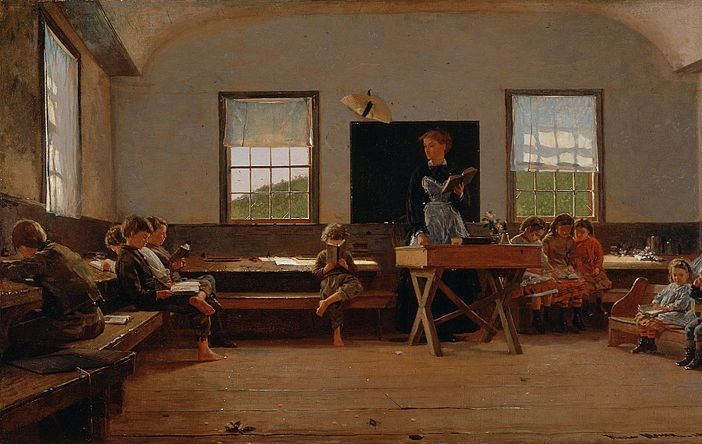Recently the Polish ministry of education, Przemysław Czarnek, announced the creation of a new mandatory school subject called “Historia i Teraźniejszość” (“History and present times”). The coursebook that was written by a former PiS EU Parliament deputy, Wojciech Roszkowski, specifically on that purposes includes numerous political and ideological biases, presenting “the one and only, proper” worldview inclined towards the policy of Polish government and based on values such as radical Christianity, homophobia, Euroscepticism and stigmatization of left-wing activism.
The newly created school subject is supposed to be taught throughout the first grade of Polish high school and to replace WOS (“Knowledge about Society” or simply Civics). What is disturbing, it does not convey a vast majority of information vital for the youth in order to become conscious citizens, aware of their own rights and responsibilities, leaving that space for the ruling party’s indoctrination and right-wing propaganda. It appears in the form of subjective insertions placed by the author between the descriptions of events taking place within the years 1945-1979.
The descriptions themselves are usually accurate, however they serve the writer as a background for the creation of his own narrative, which is heavily biased by the line of PiS. For instance, he openly compares contemporary feminist environments to the German Nazis from the twentieth century or points out (alleged) similarities between post-war counter-culture and Mao Zedong’s ideology. Furthermore, we can distinguish severe criticism of Karl Marx’s works, summed up with an assumption that “[i]f we consider the existence of God as true (and there is no clear evidence that could entirely deny it), then all the claims introduced by the Marxists and neo-Marxists lose their value”.
The author also tends to justify numerous actions taken by the Polish government, which are seen as violations of either domestic and international law. He states that “there are many cases in history, when the rule of law in practice meant abiding by some defective, even cruel legislation”, which is an obvious allusion to the dispute between the Polish officials and the Court of Justice of the European Union.
The image of Poland created by Mr. Roszkowski presents the country as the only bulwark of traditional, decent values (including democracy), which is constantly influenced by western, decadent worldview through means such as private-owned media and large businesses. Countless authoritarian reforms conducted by the ruling party (including the takeover of the Constitutional Tribunal or indoctrination widely present in the educational system) are not mentioned at all.
The scale of bias characterizing the coursebook is so immense that it even touches the topic of pedophilia in catholic church, defending the individuals responsible for sexual harassment of underage youth. Such clauses on no condition should be a part of the schooling program taught in public educational institutions. The change introduced by Mr. Czarnek not only leaves the students without a chance to learn basic terminology in the field of politics and society, delivered to them in the Civics classes, but also manipulates them through a constant exposure to the far-right, conservative worldview.
The coursebook caused massive outrage of the parliamentary opposition, nevertheless, it was approved by particular bodies responsible for the selection of works used by the teachers. The new subject is to be taught from the very beginning of a new school year.
Written by Mateusz Gwóźdź – Dep. International Officer of Młodzi .Nowocześni, Youth Vice-President of Zawiercie City, organizer and participant of Model United Nations conferences in Poland, studies in the IB diploma programme.
Continue exploring:
How Does Polish Ministry of Education and Science Respond to Contemporary Education Competences?
Others. Addressing Antisemitism and Xenophobia through Education



